World
Former Chinese President Jiang Zemin dies at 96
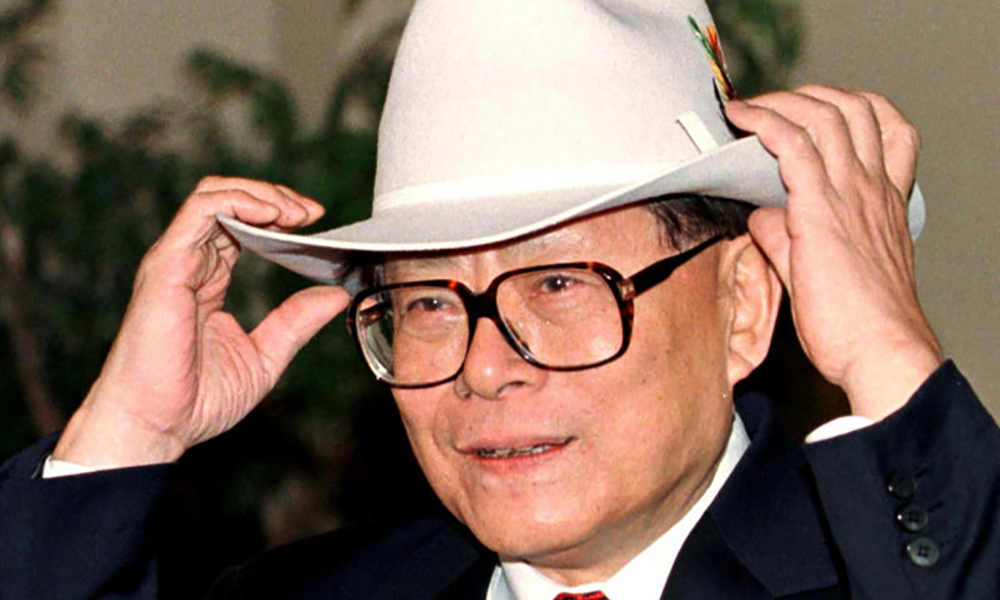
Former Chinese President Jiang Zemin, who led the country for a decade of rapid economic growth after the Tiananmen crackdown in 1989, died on Wednesday at the age of 96, Chinese state media reported.
Jiang died in his home city of Shanghai just after noon on Wednesday of leukaemia and multiple organ failure, Xinhua news agency said, publishing a letter to the Chinese people by the ruling Communist Party, parliament, Cabinet and the military, Reuters reported.
“Comrade Jiang Zemin’s death is an incalculable loss to our Party and our military and our people of all ethnic groups,” the letter read, saying its announcement was with “profound grief”.
According to Reuters Jiang’s death comes at a tumultuous time in China, where authorities are grappling with rare widespread street protests among residents fed up with heavy-handed COVID-19 curbs nearly three years into the pandemic.
The zero-COVID policy is a hallmark or President Xi Jinping, who recently secured a third leadership term that cements his place as China’s most powerful leader since Mao Zedong and has taken China in an increasingly authoritarian direction since replacing Jiang’s immediate successor, Hu Jintao.
China is also in the midst of a sharp economic slowdown exacerbated by zero-COVID, read the report.
Numerous users of China’s Twitter-like Weibo platform described the death of Jiang, who remained influential after finally retiring in 2004, as the end of an era.
“I’m very sad, not only for his departure, but also because I really feel that an era is over,” a Henan province-based user wrote.
“As if what has happened wasn’t enough, 2022 tells people in a more brutal way that an era is over,” a Beijing Weibo user posted.
The online pages of state media sites including People’s Daily and Xinhua turned to black and white in mourning, read the report.
Wednesday’s letter described “our beloved Comrade Jiang Zemin” as an outstanding leader of high prestige, a great Marxist, statesman, military strategist and diplomat and a long-tested communist fighter.
Jiang was plucked from obscurity to head China’s ruling Communist Party after the bloody Tiananmen crackdown on pro-democracy protesters in 1989, but broke the country out of its subsequent diplomatic isolation, mending fences with the United States and overseeing an unprecedented economic boom.
He served as president from 1993 to 2003 but held China’s top job, as head of the ruling Communist Party, from 1989 and handed over that role to Hu in 2002. He only gave up the position as head of the military in 2004, which he also assumed in 1989.
According to Reuters when Jiang retired, it was said by sources close to the leadership at the time that everywhere Hu looked he would see the supporters of his predecessor.
Jiang had stacked China’s most powerful leadership body, the Politburo Standing Committee, with his own protégées, many of them from the so-called “Shanghai Gang”.
But in the years after Jiang retired from his final post, the military commission chairmanship in 2004, Hu consolidated his grip, neutralised the Shanghai Gang and successfully anointed Xi as a successor, Reuters reported.
World
Trump urges Russia to stop attacks; Rubio says US might walk away from peace efforts
Zelenskiy wrote on the messaging app Telegram that his top military commander reported that Russia had already conducted nearly 70 attacks on Sunday.

President Donald Trump urged Russia on Sunday to stop its attacks in Ukraine while his top diplomat said the United States might walk away from peace efforts if it does not see progress, Reuters reported.
Speaking to reporters in New Jersey, Trump said he was disappointed that Russia has continued to attack Ukraine, and said his one-on-one meeting with Ukrainian President Volodymyr Zelenskiy at the Vatican on Saturday had gone well.
“I see him as calmer. I think he understands the picture, and I think he wants to make a deal,” Trump said of Zelenskiy.
U.S. Secretary of State Marco Rubio, meanwhile, said the Trump administration might abandon its attempts to broker a deal if Russia and Ukraine do not make headway.
“It needs to happen soon,” Rubio told the NBC program “Meet the Press.'” “We cannot continue to dedicate time and resources to this effort if it’s not going to come to fruition.”
Trump and Zelenskiy, in Rome for the funeral of Pope Francis, met in a Vatican basilica on Saturday to try to revive faltering efforts to end the war in Ukraine. The meeting was the first between the two leaders since an angry encounter in the White House Oval Office in February and comes at a critical time in negotiations aimed at bringing an end to the conflict, read the report.
Trump rebuked Russian President Vladimir Putin after that meeting, saying on social media that there is “no reason” for Russia to shoot missiles into civilian areas.
In a pre-taped interview that aired on the CBS program “Face the Nation” on Sunday, Russian Foreign Minister Sergei Lavrov said Russia would continue to target sites used by Ukraine’s military. When asked about a Russian strike on Kyiv last week that killed civilians, Lavrov said that “the target attacked was not something absolutely civilian” and that Russia targets only “sites which are used by the military.”
Zelenskiy wrote on the messaging app Telegram that his top military commander reported that Russia had already conducted nearly 70 attacks on Sunday.
“The situation at the front and the real activity of the Russian army prove that there is currently insufficient pressure on Russia from the world to end this war,” Zelenskiy said.
Ukrainian and European officials pushed back last week against some U.S. proposals on how to end the war, making counterproposals on issues from territory to sanctions.
American proposals called for U.S. recognition of Russia’s control over Crimea, the Ukrainian peninsula that Moscow seized and annexed in 2014, as well as de facto recognition of Russia’s hold on other parts of Ukraine.
In contrast, the European and Ukrainian proposal defers detailed discussion about territory until after a ceasefire is concluded.
German Defense Minister Boris Pistorius said on Sunday that Ukraine should not agree to the American proposal, saying it went too far in ceding swathes of territory in return for a ceasefire.
Mike Waltz, Trump’s national security adviser, said the U.S. president has “expressed his frustration” at both Putin and Zelenskiy but remains determined to help negotiate an agreement. Waltz also said the United States and Ukraine would eventually reach an agreement over rare earth minerals, Reuters reported.
Chuck Schumer, the top U.S. Senate Democrat, said on Sunday that he is concerned Trump will “cave in to Putin.”
“To just abandon Ukraine, after all the sacrifice that they made, after so much loss of life, and with the rallying of the whole West against Putin, it would just be a moral tragedy,” Schumer said on CNN’s “State of the Union” program.
World
Trump and Zelenskiy meet one-on-one in Vatican basilica to seek Ukraine peace
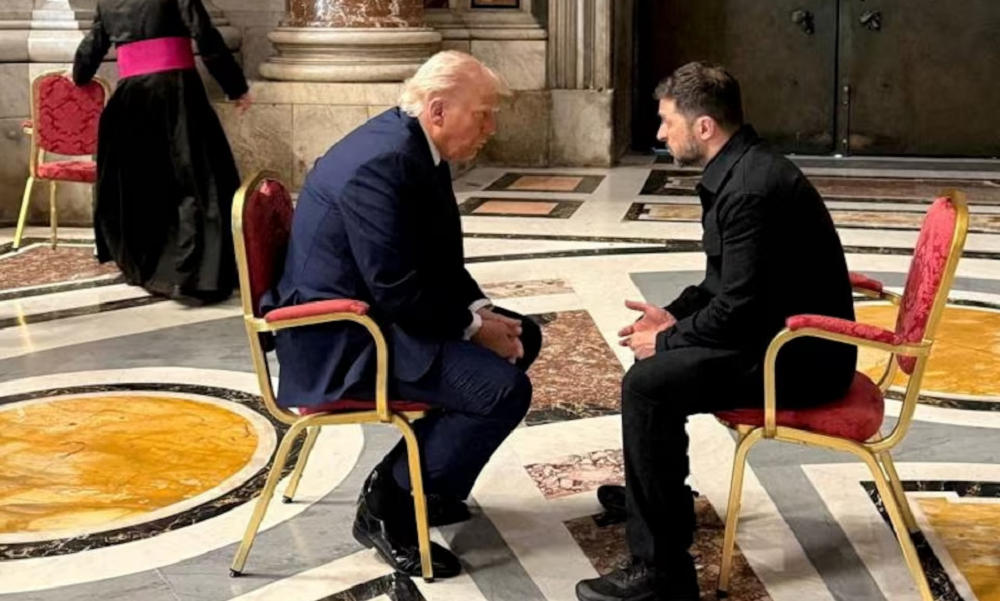
U.S. President Donald Trump and Ukrainian leader Volodymyr Zelenskiy, in Rome for the funeral of Pope Francis, met one-on-one in a marble-lined Vatican basilica on Saturday to try to revive faltering efforts to end Russia’s war with Ukraine.
Zelenskiy said the meeting could prove historic if it delivers the kind of peace he is hoping for, and a White House spokesman called it “very productive”.
The two leaders, leaning in close to each other with no aides around them while seated in St Peter’s Basilica, spoke for about 15 minutes, according to Zelenskiy’s office, which also released photographs of the meeting.
The meeting at the Vatican, their first since an angry encounter in the Oval Office in Washington in February, comes at a critical time in negotiations aimed at bringing an end to fighting between Ukraine and Russia.
In a post on social media platform Telegram, Zelenskiy wrote: “Good meeting. One-on-one, we managed to discuss a lot. We hope for a result from all the things that were spoken about.”
He said those topics included: “The protection of the lives of our people. A complete and unconditional ceasefire. A reliable and lasting peace that will prevent a recurrence of war.”
Zelenskiy added: “It was a very symbolic meeting that has the potential to become historic if we achieve joint results. Thank you, President Donald Trump!”
Steven Cheung, White House communications director, said the two leaders had met privately and had “a very productive discussion. More details about the meeting will follow”.
In one photograph released by Zelenskiy’s office, the Ukrainian and U.S. leaders sat opposite each other in a hall of the basilica, around two feet apart, and were leaning in towards each other in conversation. No aides could be seen in the image.
In a second photograph, from the same location, Zelenskiy, Trump, British Prime Minister Keir Starmer and French President Emmanuel Macron were shown standing in a tight huddle. Macron had his hand on Zelenskiy’s shoulder.
After Trump and Zelenskiy met in the basilica, the two men joined other world leaders outside in Saint Peter’s Square at the funeral service for Pope Francis, who made the pursuit of peace, including in Ukraine, a motif of his papacy.
Italian Cardinal Giovanni Battista Re, who gave the sermon at the funeral service, recalled how Pope Francis did not stop raising his voice to call for negotiations to end conflicts.
“War always leaves the world worse than it was before: it is always a painful and tragic defeat for everyone,” the cardinal said.
A Zelenskiy spokesman had earlier said aides to the two leaders were working on arrangements for a follow-up meeting in Rome later on Saturday. The spokesman subsequently said, after Trump’s aircraft took off from Rome, that the second meeting did not happen, citing the presidents’ tight schedules.
Trump, who has been pressing both sides to agree a ceasefire, said on Friday that there had been productive talks between his envoy and the Russian leadership in Moscow, and called for a high-level meeting between Kyiv and Moscow to close a deal.
Trump had previously warned his administration would walk away from its efforts to achieve a peace if the two sides do not agree a deal soon.
(Reuters)
World
Senior Russian military officer killed in car explosion near Moscow
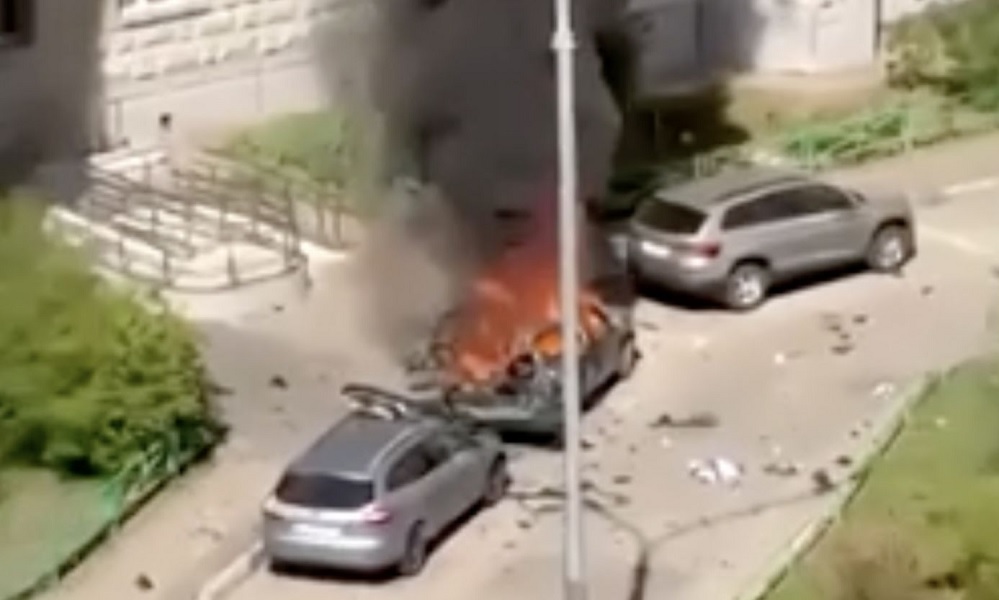
A senior Russian military officer was killed when a car exploded on Friday in the town of Balashikha just east of Moscow, Russia’s Investigative Committee said.
It named the officer as Yaroslav Moskalik, deputy head of the Main Operations Directorate of the General Staff of the Russian Armed Forces, and said it had opened a criminal case into the incident, Reuters reported.
“According to available data, the explosion occurred as a result of the detonation of a homemade explosive device filled with destructive elements,” the Investigative Committee said in a statement.
The statement did not say who might be behind the incident. Several high-ranking Russian military figures have been assassinated since the start of the war in Ukraine in operations blamed by Moscow on Kyiv.
Russian media outlet Baza, which has sources in Russia’s law enforcement agencies, said a bomb in a parked car had been detonated remotely when the officer – who lived locally – walked past.
The Izvestia newspaper published video footage showing a person approaching a line of parked cars outside an apartment complex and an explosion that sent parts of a vehicle flying metres into the air.
Kommersant newspaper said a second person was also killed.
Moskalik, who held the rank of major general, had participated in several high-level Russian delegations, according to defence ministry bulletins and media reports.
He joined the Russian contingent in a meeting in October 2015 of the Normandy Format, a group made up of teams from Germany, Russia, Ukraine and France who oversaw the Minsk agreements designed to end the war between Ukraine and Russian-backed separatist forces that broke out in 2014.
Moskalik represented the army’s General Staff at the negotiations alongside Foreign Minister Sergei Lavrov and Kremlin aide Yuri Ushakov, according to the Kremlin website.
Russia’s RBC newspaper listed Moskalik as a participant in the security subgroup in the Minsk talks.
In December, Ukraine’s SBU intelligence service used a bomb hidden in an electric scooter to kill Lieutenant General Igor Kirillov, whom Kyiv accused of being responsible for the use of chemical weapons against Ukrainian troops.
The SBU did not immediately respond to a request for comment on the reported death of Moskalik.
-

 Latest News5 days ago
Latest News5 days agoAWCC activates new site in Nangarhar’s Kuz Kunar district
-

 Latest News5 days ago
Latest News5 days agoTarig Ali Bakheet and Japan’s Deputy Foreign Minister discuss Afghanistan’s situation
-

 Business5 days ago
Business5 days agoPakistan’s deputy PM discusses Trans-Afghan Railway Line project with Uzbek FM
-
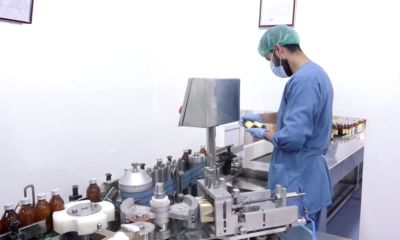
 Latest News3 days ago
Latest News3 days agoAfghanistan’s medicine output reaches 900 types: Pharma Union
-

 Latest News4 days ago
Latest News4 days agoAfghan delegation to participate in Iran’s international expo
-

 Latest News4 days ago
Latest News4 days agoWFP appeals for $25 million to help support Afghan returnees amid humanitarian crisis
-
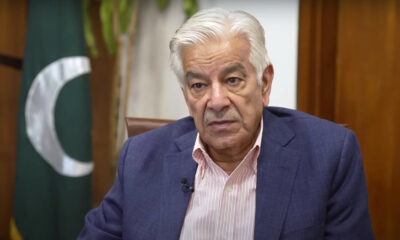
 Latest News3 days ago
Latest News3 days agoTerrorist attacks in Pakistan originate from Afghanistan: Khawaja Asif
-
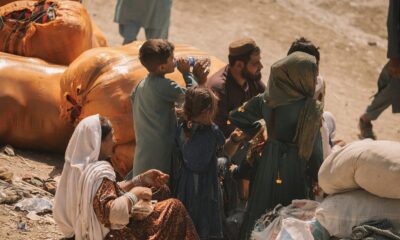
 Latest News4 days ago
Latest News4 days agoRegistered Afghan refugees must return by June 30 or face deportation: Pakistani official

















